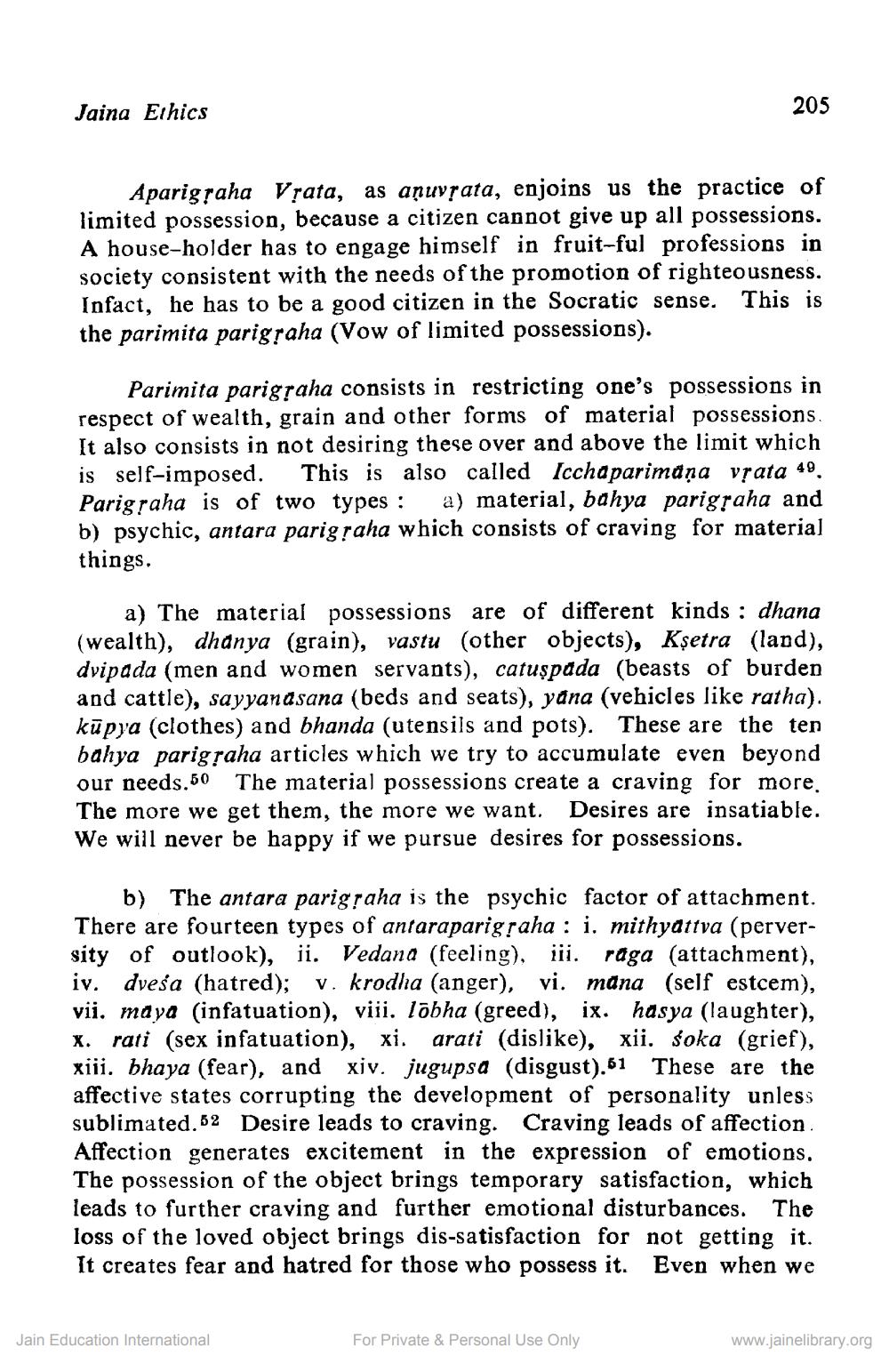________________
Jaina Ethics
205
Aparigraha Vrata, as asuvşata, enjoins us the practice of limited possession, because a citizen cannot give up all possessions. A house-holder has to engage himself in fruit-ful professions in society consistent with the needs of the promotion of righteousness. Infact, he has to be a good citizen in the Socratic sense. This is the parimita parigsaha (Vow of limited possessions).
Parimita parigsaha consists in restricting one's possessions in respect of wealth, grain and other forms of material possessions. It also consists in not desiring these over and above the limit which is self-imposed. This is also called Icchaparimaņa vrata 49. Parig saha is of two types : a) material, bahya parigsaha and b) psychic, antara parigľaha which consists of craving for material things.
a) The material possessions are of different kinds : dhana (wealth), dhanya (grain), vastu (other objects), Kșetra (land), dvipada (men and women servants), catuṣpada (beasts of burden and cattle), sayyanasana (beds and seats), yana (vehicles like ratha). kūpya (clothes) and bhanda (utensils and pots). These are the ten bahya parigraha articles which we try to accumulate even beyond our needs.50 The material possessions create a craving for more. The more we get them, the more we want. Desires are insatiable. We will never be happy if we pursue desires for possessions.
b) The antara parigsaha is the psychic factor of attachment. There are fourteen types of antaraparigsaha : i. mithyattva (perversity of outlook), ji. Vedana (feeling), iii. raga (attachment), iv. dvesa (hatred); v. krodha (anger), vi. mana (self estcem), vii. maya (infatuation), viii. lõbha (greed), ix. hasya (laughter), x. rati (sex infatuation), xi. arati (dislike), xii. śoka (grief), xiii. bhaya (fear), and xiv. jugupsa (disgust).61 These are the affective states corrupting the development of personality unless sublimated.52 Desire leads to craving. Craving leads of affection Affection generates excitement in the expression of emotions. The possession of the object brings temporary satisfaction, which leads to further craving and further emotional disturbances. The loss of the loved object brings dis-satisfaction for not getting it. It creates fear and hatred for those who possess it. Even when we
Jain Education International
For Private & Personal Use Only
www.jainelibrary.org




